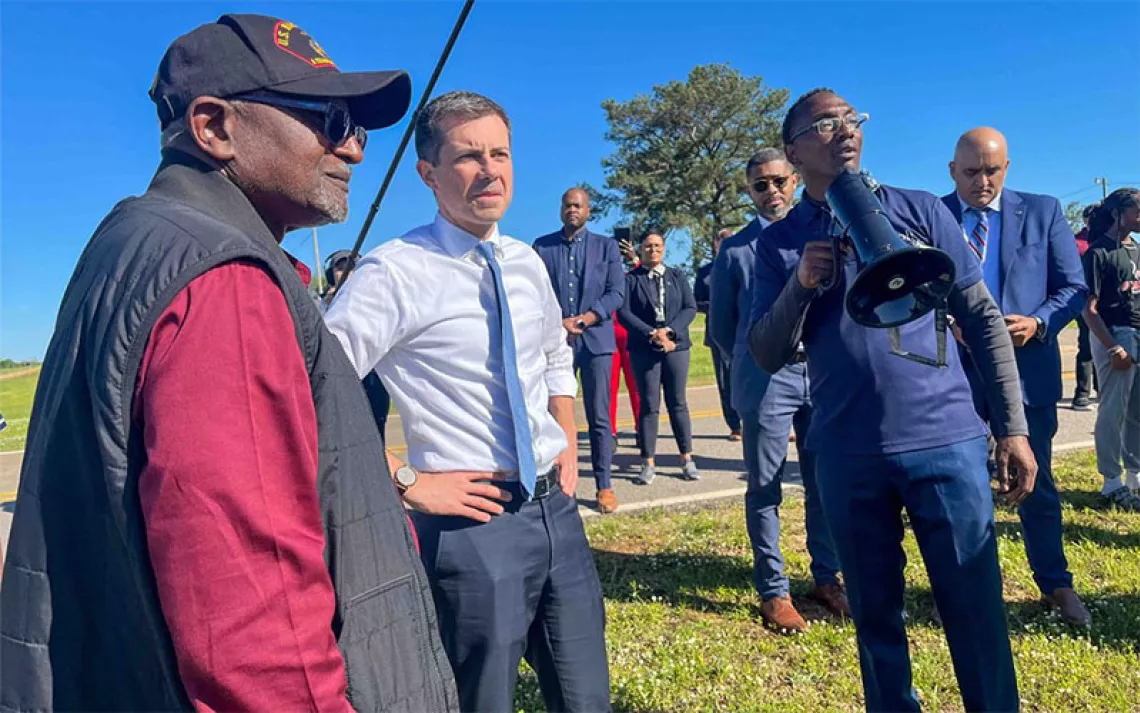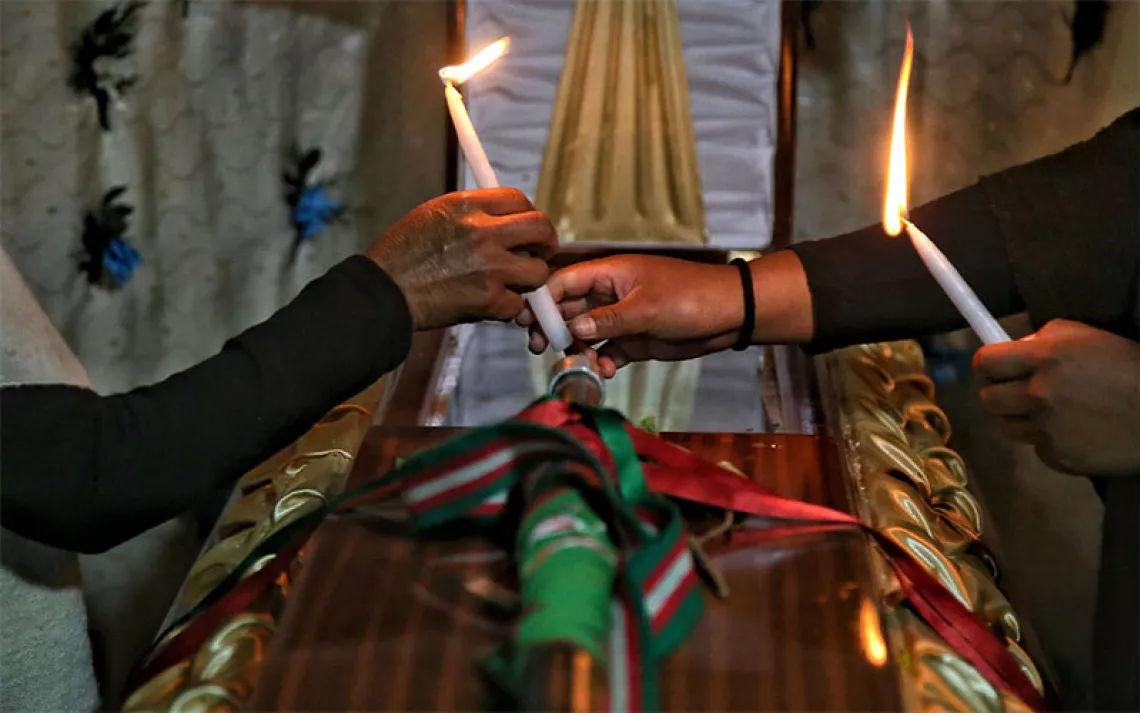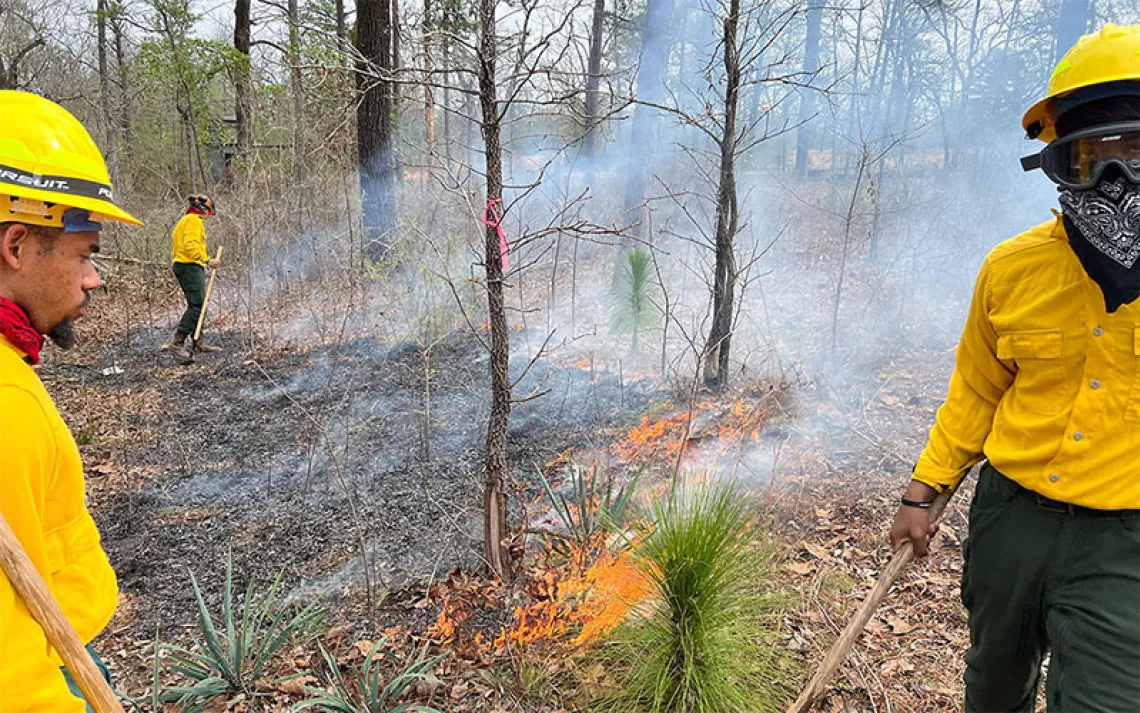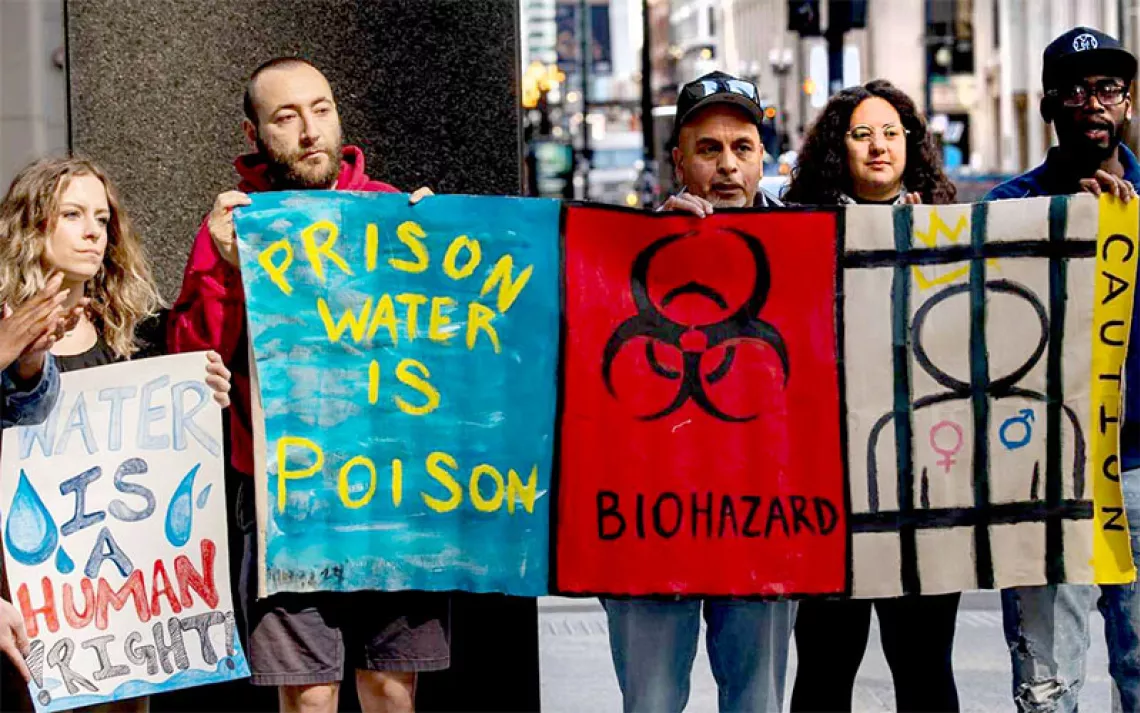Saving the Climate Isn't Enough
Pope Francis challenges the world to defend the planet—and the poor

Pope Francis greets the crowd as he arrives in St. Peter's Square, Vatican City. | Photo by Fabio Frustaci/EPA/Landov
On June 18, the Vatican released Laudato Si', Pope Francis's encyclical on the environment, subtitled "Care for Our Common Home." Environmentalists hoped it would build momentum for the United Nations Climate Change Conference in December, while fossil fuel apologists attacked the pope's credibility. (Rush Limbaugh went so far as to call the pontiff a Marxist.)
But the papal letter's significance goes far beyond its widely noted alarm about climate change to ask readers of all faiths to consider their relationship to the planet as a whole. "We are not faced with two separate crises, one environmental and the other social," Pope Francis writes, "but rather one complex crisis which is both social and environmental."
For environmental justice scholar Sylvia Hood Washington, who is both Catholic and African American, this holistic approach is what makes the encyclical so revolutionary. "When you have the pope clearly state that the degradation of the environment and the degradation of human beings is a sin? Praise be to God!" she says. "It's a blessing to every human being who has wanted justice and equity."
Hood Washington's environmental ethos has a rigorous academic underpinning, but she also has a personal stake: Her mother died during an extended heat wave in Cleveland in 1988, the kind of disaster that will become both more frequent and more lethal as the planet warms. Heat waves, she points out, are particularly deadly for people with chronic diseases like the hypertension and diabetes that are epidemic in the black community.
"The climate of the earth, but also the internal climate of the human body, has been changed by the industrial production of energy," she says. "What we corrupt on the earth, we corrupt in ourselves."
Study after study has shown that those who will be most affected by climate change have played the smallest role in creating it. By 2030, up to 325 million extremely poor people will be living in the 49 countries most vulnerable to climate catastrophe, mostly in South Asia and sub-Saharan Africa. The annual carbon footprint of these countries' residents is 10 to 2,000 times smaller than that of the average U.S. resident. In any country, the impacts of climate-related cataclysms are intensified by poverty.
"Heat waves that have office workers reaching for the air conditioning will have farm workers facing heat stroke," writes environmental economist Jonah Busch. "Rising food prices that hit the rich in the wallet will hit the poor in the stomach. And storms that rattle windows in affluent homes will sweep away poor homes entirely."
Laudato Si' asks readers to feel the pain of these impacts and to take action to prevent them. For some Catholics, that may mean reducing their individual footprint—consuming less, riding a bike instead of driving, maybe bringing back the tradition of meatless Fridays. For others, it will mean political engagement to move the needle on climate policy. But anyone who reads the encyclical with an open mind will be moved to action. "It's a challenging document," observes Patrick Carolan, executive director of the Franciscan Action Network. "If you're reading it, you're going to feel uncomfortable. St. Francis of Assisi taught us that you're never transformed in your comfort zone. It's not business as usual—it can't be."
WHAT YOU CAN DO
The pope's call for action on climate will echo in Paris this December, when world leaders will meet for the U.N. Climate Change Conference. To demand that they reach a strong agreement to cut global carbon emissions, sign the petition here.
 The Magazine of The Sierra Club
The Magazine of The Sierra Club



